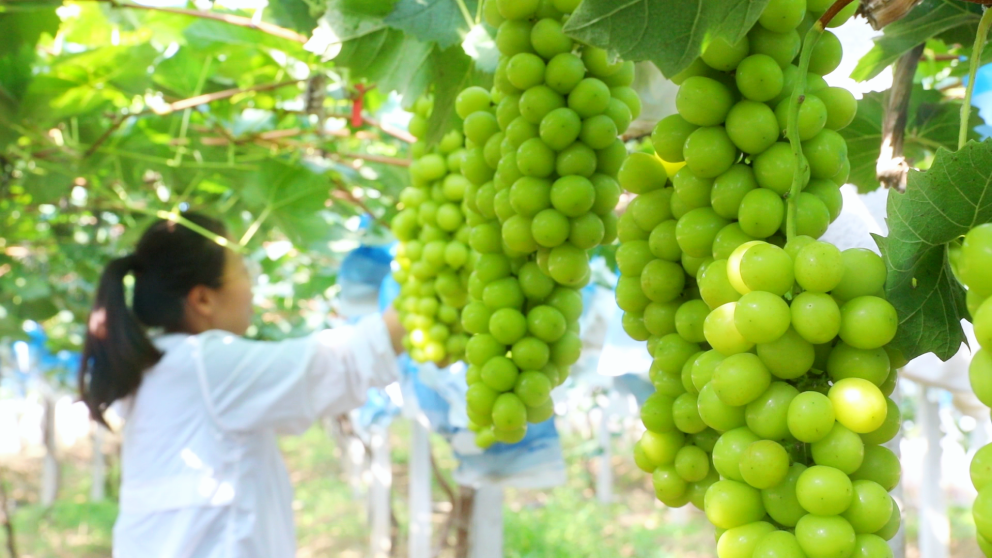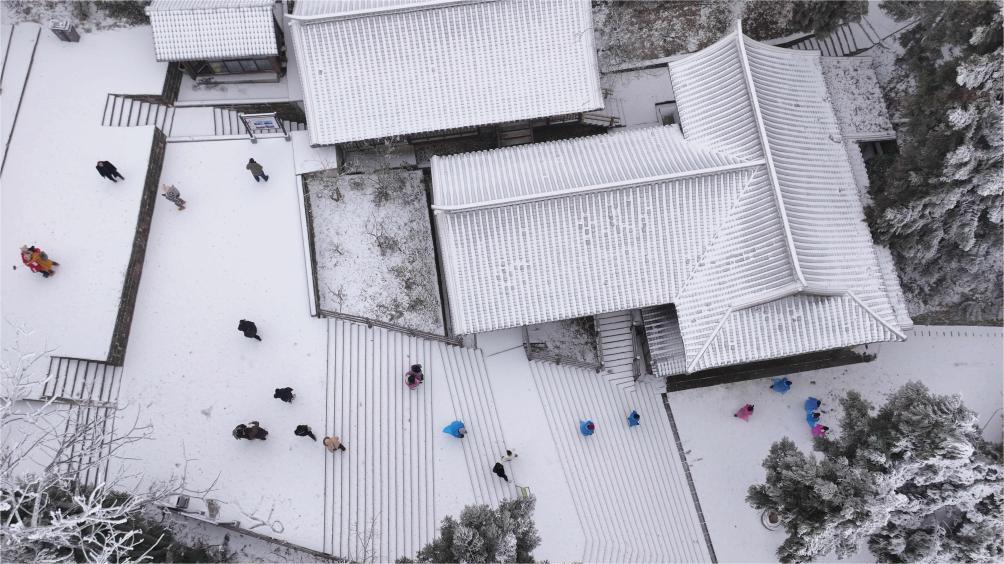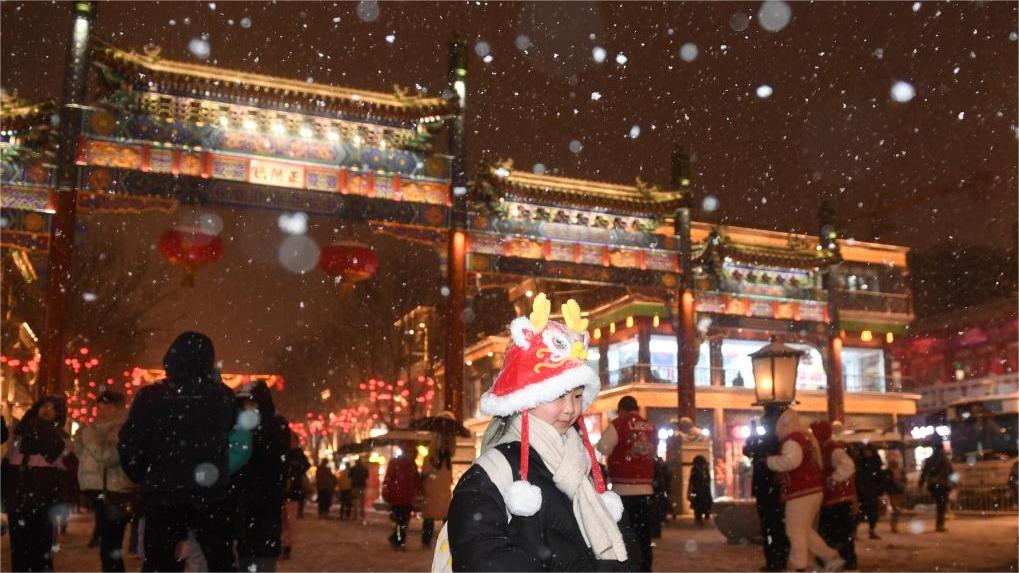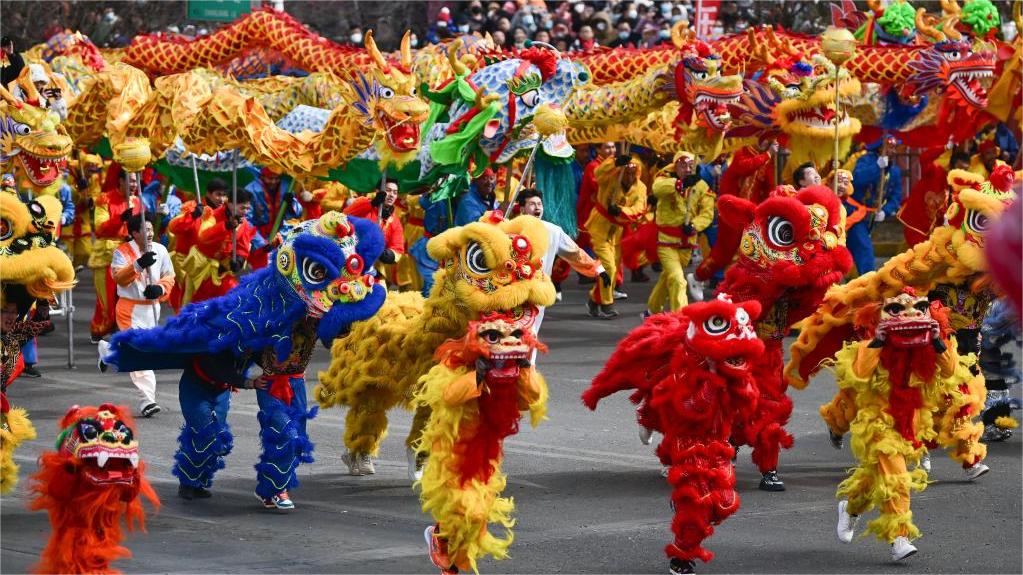New types of farmers help spur rural vitalization
Gu Jianjun has been busy with winter pruning and maintaining honeysuckle plants at a honeysuckle plantation in Balijing village, Fanxiang township, Changyuan city, central China's Henan Province.
"Our honeysuckle is a patented variety developed by Henan Normal University. It is disease and pest resistant, of excellent quality, and has high yields. It can be sold for 150 to 160 yuan ($22.30) per kilogram, generating a net income of 7,000 to 10,000 yuan per mu (0.066 hectares) of land," said Gu, the manager of the planting base.
The honeysuckle picking season runs from May to October, with an annual yield of about 100 kilograms of dried flowers per mu of land.

A villager showcases freshly picked honeysuckle flowers in Balijing village, Fanxiang township, Changyuan city, central China's Henan Province. (Photo/Qiao Wenbin)
In 2019, Gu decided to start growing honeysuckle due to its relatively good benefits as a medicinal herb. "So far, I have planted honeysuckle on over 30 mu of land, some of which is my own land, and some is rented from local farmers," Gu said.
"Initially, I invested a lot of time learning and practicing due to a lack of planting experience. After hard work, I have now mastered the planting techniques of honeysuckles," Gu said.
"This year, my goal is to continuously optimize the planting process, strengthen management, and steadily expand the planting area. I also plan to promote mechanized planting to improve efficiency," Gu said.
In 2008, Li Ruiling, a villager from Xiaotun village in Fanxiang township, quit his job and started his own business after conducting thorough research. With the knowledge and skills he had acquired, Li established a cooperative and began cultivating grapes and peaches.
Li sought the advice of experts and technicians nationwide during the initial stages of establishing the orchard to ensure successful cultivation.
In recent years, the cooperative has actively promoted a model that integrates the primary, secondary, and tertiary industries. This model focuses on educational trips, facility agriculture, fruit tree cultivation, fruit wine processing, and wheat breeding, contributing to the development of local industries.
"Initially, the cooperative primarily sold grapes. Nowadays, the cooperative relies heavily on the grape picking business. Every weekend, a significant number of tourists visit the vineyard for grape picking, generating substantial income for the cooperative," said Li.
Following the conclusion of the peak sales season each year, the unsold grapes are processed into wine, diversifying the cooperative's product line and enhancing the market offerings.

Photo shows Shine Muscat grapes grown in Xiaotun village, Fanxiang township, Changyuan city, central China's Henan Province. (Photo/Xiao Junnan)
The vineyard serves as a source of employment for local villagers, offering job opportunities that contribute to their income and overall livelihood. The workforce is primarily composed of middle-aged and elderly individuals from the village who can secure a stable income through their work in the vineyard.
In addition to the two villages, there are many other villages in Fanxiang township that leverage their own resource and ecological advantages to explore the "one village, one product" development model, according to Li Zhixi, head of Fanxiang township. This not only strengthens the collective economy but also provides more income opportunities for villagers through local employment.
Photos
Related Stories
- China's rural policy bank to increase financial support for rural revitalization
- Back to countryside, new trend amid China's rural revitalization drive
- Utilization of straws drives rural revitalization, economically and ecologically
- "Village galas" proving a driving force in rural revitalization
- Explainer: How will China promote rural revitalization?
- No 1 Central Document details rural vitalization strategy
Copyright © 2024 People's Daily Online. All Rights Reserved.









